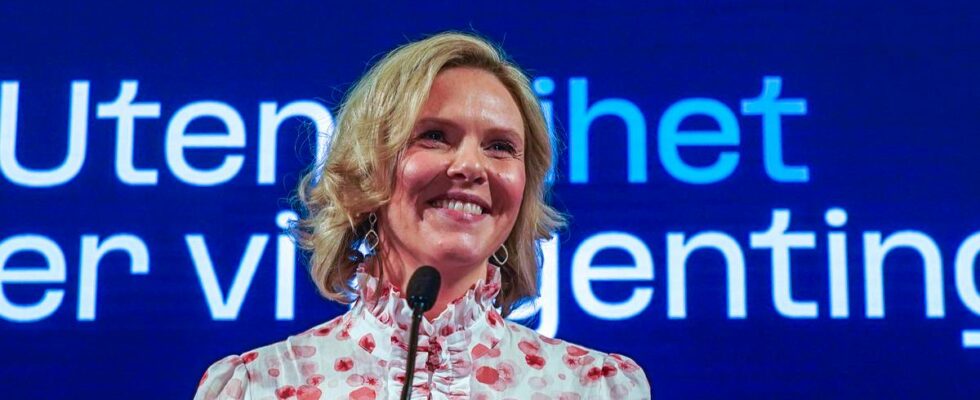There is currently a debate going on about so-called “tradwives”, a phenomenon that has made itself felt in social media in recent years. Female influencers who reach millions of viewers often speak warmly about the value of spending more time at home with the children at the expense of the rush of careers and time constraints. It is good that a high proportion of Norwegian women choose working life. It provides increased value creation and competitiveness, more wise heads and warm hands, to name a few. Nevertheless, we politicians should be very careful about moralizing about people’s personal freedom to make their own choices. Norwegian women are single, cohabiting, childless, mothers, homemakers and full-time employees. They are not the same, but unique individuals with different needs, interests, talents and perceptions of the good life. Politics must reflect this, not be based on an outdated idea that everyone should march to the same beat. When Labor Minister Tonje Brenna and Industry Minister Cecilie Myrseth warn young women against making personal choices that are not in line with the Labor Party’s policy, the debate has completely derailed. The play also illustrates the double standard which is so clearly visible in parts of the left in equality politics. On the one hand, there are loud calls for women to stand up for themselves, follow their dreams and make their own choices. Some politicians then strike back and moralize about young women who make choices that are not in accordance with their own political view of the world. Self-determination is suddenly subordinated. The Tradwife trend, where some glorify the 1950s housewife life with all that entails, is unlikely to appeal particularly broadly to Norwegian women in 2024. But politicians should have respect for the fact that some women, or for that matter men, make other choices than the typical A4 life , as long as this is financed by oneself and not by taxpayers. As is well known, every reaction has a counter-reaction, also in politics. Trends do not occur in a vacuum, but usually correspond to another extreme. I believe that part of the tradwife trend can be attributed to the fact that the attempts at gender equality policies have become so intrusive that they go beyond women’s individual freedom. Then a counter-reaction occurs. It is connected to the pressure and stress that many parents of young children experience. And it is precisely here that Tonje Brenna and Cecilie Myrseth show that they do not keep up with the times and understand modern women. The consequence is that the Labor Party pursues a policy which quite consistently reduces women’s freedom to make their own, independent choices. Where the FRP believes that families with young children should have the freedom to decide how they allocate parental leave, the Labor Party forces families to split up the leave where one third must be taken by the father, one third by the mother and where only the last third is optional. The result is that almost half of Norwegian women with young children take unpaid leave to stay at home with the child longer. Along the way, several of them lose their pension earnings and sick pay rights. Where the FRP believes that there should be the same requirement to receive cash support as having the right to parental leave in order to prevent integration problems linked to this scheme, the Labor Party will abolish the entire cash support and make it more difficult for many to choose more time with their children. The result will soon be that women will have reduced freedom of choice because more will have to take unpaid leave if they can afford it. Where the FRP wants to have ongoing kindergarten admissions to ensure that all children, regardless of when they are born in the year, are guaranteed an offer of a kindergarten place by the time they are one year old, Ap pursues a policy that gives children born from August to November inclusive the right to a place from the child is one year. If the child is born in December and at the start of the year, you often have to wait until the child is 1.5 years old before they get a place. The result is once again that it is the women who to the greatest extent stay at home unpaid with the children for up to six months before the pod is secured a nursery place. In working life, there are also a number of examples of Labor policies that punish women particularly harshly. In Norway, only every fifth entrepreneur is a woman. But in typical health and care services run by private actors such as in home services, substance abuse care, child protection and kindergartens, female entrepreneurs are in the majority. Where the FRP believes that we must use all good forces, whether they are private, public or non-profit, female entrepreneurs experience regular attacks from the Labor Party, which throws private providers out of health and care services. The government’s constant tightening and weakening of the framework conditions for private kindergartens is well known. Female entrepreneurs are the losers. There is something old-fashioned and artificial about two ministers who go out and warn Norwegian women against making their own choices. Because no matter how much the Labor Party might want it, modern women are not a gray mass that marches to the beat of equal goals in this life. They are unique individuals with different needs, interests, talents and perceptions of the good life. Politics must reflect this and reward – not punish – freedom of choice. There is a sea of nuances between housewives and career women who work 70 hours a week. This debate deserves better than going into each other’s trenches. Published 11.06.2024, at 12.39
ttn-69
Ap does not understand modern women – Statement

